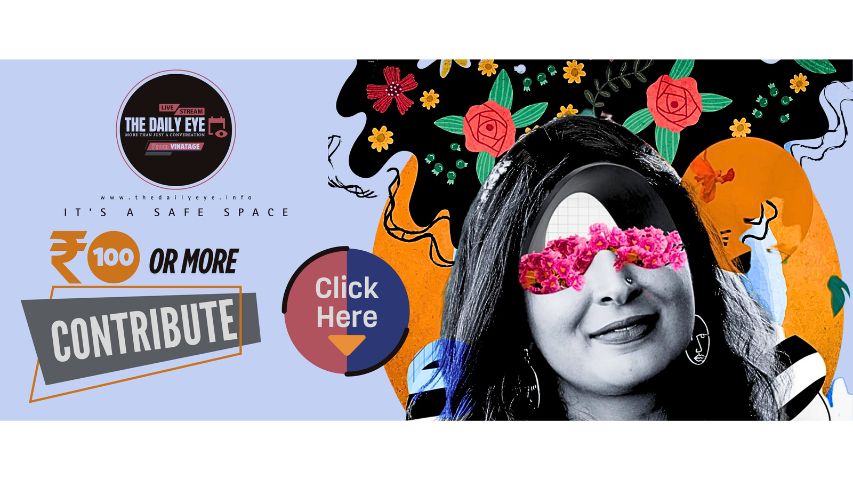-853X543.jpg)
HOLLYWOOD: LOVE, MATH & MODERN MATCHMAKING
by Yashika Begwani June 22 2025, 12:00 am Estimated Reading Time: 5 mins, 20 secsA modern reflection on love, class, and emotional currency, inspired by The Materialists—where algorithms meet affection, and matchmaking becomes a mirror to what truly matters in modern relationships. Yashika Begwani writes…
The Materialists, Celine Song’s latest film, sparks a compelling exploration of modern love, matchmaking, and class dynamics. Through the lens of a pragmatic matchmaker, it delves into emotional intimacy, societal expectations, and the logic-versus-longing debate in relationships today. This reflection draws parallels with cinematic classics like Little Women and OK Kanmani, uncovering how contemporary romance often balances idealism with economic realities. As dating apps and curated partnerships redefine love, The Materialists poses vital questions: What are we really matching? And can emotional fluency be the new compatibility metric in a data-driven dating culture?
A Reflection Triggered by The Materialists
In perhaps one of the most iconic scenes of OK Kanmani, Mani Ratnam’s modern take on love and cohabitation, the meet-cute unfolds inside a church. Ironically, the couple flirts playfully while critiquing the very idea of marriage. It’s a quiet rebellion—and a poetic beginning to their journey. A love story of our times.
One that balances idealism and practicality, attraction and intention.
That scene came rushing back to me (in yet another church scene) as I settled into The Materialists, Celine Song’s new offering on love, class, and the curious calculations that underpin modern relationships.
Love in the Time of Logic
The Materialists sits as a crafted inquiry of love, of longing, of how we match our inner worlds with our outer realities. It’s stunning to watch—full of warm frames, subtly expressive camerawork, and an earthy, elegant Dakota Johnson, who brings to life Lucy—the charming, composed, slightly jaded, yet realistic matchmaker who celebrates the ninth wedding among her clients.
Yes, nine. She's figured the algorithm.
Lucy knows the drill—5 ft 6 inches, $2,000 suits, Ivy League degrees—there’s math to modern matchmaking. Marriage, here, isn’t just about love. It’s economics. It’s politics. It’s class alignment.
And this little part took me straight to another cinematic moment—Amy March in Greta Gerwig’s Little Women, who famously says, “Don’t tell me marriage isn’t an economic proposition... because it is.” She’s not apologetic about it. She knows what she’s up against.
So does Lucy.

Class, Charm, and Contradictions
Lucy meets Harry (Pedro Pascal), a unicorn in her world—wealthy beyond reason, with a $20 million apartment and a soft voice. But she flinches. “I was born poor, raised poor,” she says. The equation doesn’t match.
Personally, I did feel the film handled class with a bit of a heavy brushstroke—wealth is depicted in extremes, while the middle class, the working class, the quiet strugglers are mostly absent. But perhaps that’s the point: in this world of curated matches and capitalist love, you either arrive dripping in privilege—or stay negotiating your worth (almost throughout a lifetime).
Things get more interesting when Lucy’s past shows up—her ex-boyfriend John (Chris Evans) re-enters the picture. There’s tension, spark, comfort. It isn’t loud, but it’s there. Alive. You sense it, you breathe it, and dance with it (quite literally with some of those camera movements).
From here, the film gently shifts its gaze from matchmaking to meaning-making. What does Lucy really want? What does she value? Who is she when no one’s watching?
The music deserves a mention here—mature, understated, and reminiscent of Past Lives. It gives the film a quiet depth, wrapping Lucy’s dilemma in a kind of emotional intimacy rarely seen in this romantic film genre.
A Gaze Less Judgmental
This piece, really, is as much about The Materialists. Yes, the film did invoke some questions (and left some unanswered ones). But I must talk about how Celine Song really gazes into and through the eyes of women, modern women.
Celine does something remarkable: she allows her women characters to want. Openly. Without shame. They’re allowed to list preferences—economic, physical, political—without being painted as greedy or shallow. Lucy herself is self-aware, even about her own judgments.
“I did make judgmental comments about my boyfriend being poor,” she confesses.
And that honesty feels rare and refreshing.
The Emotional Economy of Love
What I admire most in Lucy (and many women today) is not her perfection, but her internal conflict. She’s working it out—what she wants, what she fears, what she’ll compromise on. There’s realism in that. Vulnerability. And a very modern kind of courage.
In fact, this mirrors a recurring theme in many conversations I’ve had with women in their 30s and 40s: What is love supposed to look like now?
Is it the dreamy, high-rise champagne moment captured for Instagram? Or is it quieter—rooted in someone who listens deeply, holds space, and chooses you daily?
I once asked a couple—co-founders of two startups, married after dating for years—what makes their partnership last. She didn’t blink before answering: “Emotional intimacy. That’s it. Shared values, aligned energy, a sense of being seen.”
That sentence stayed with me.
Because maybe that’s what a lot of us are seeking underneath the sheen of curated dating apps and perfectly matched biodatas—emotional fluency. The ability to grow, fail, stumble, and still feel safe.
So, What Are We Really Matching?
While I’m not completely satisfied and aligned with how the film ends, The Materialists does one thing well. It asks.
Is love still love if it comes with conditions?
Are partnerships about logic or longing?
And can we still afford to believe in "one true admirer" in a world where data and desire collide?
In a culture where weddings are Instagram campaigns and love is often monetized, perhaps what we truly crave is presence. Not just the big gestures, but the little moments. The ones that whisper: "I see you. I hear you. I choose you. Still."
How would you make or even gauge your choices?





-173X130.jpg)
-173X130.jpg)
-173X130.jpg)
-173X130.jpg)



